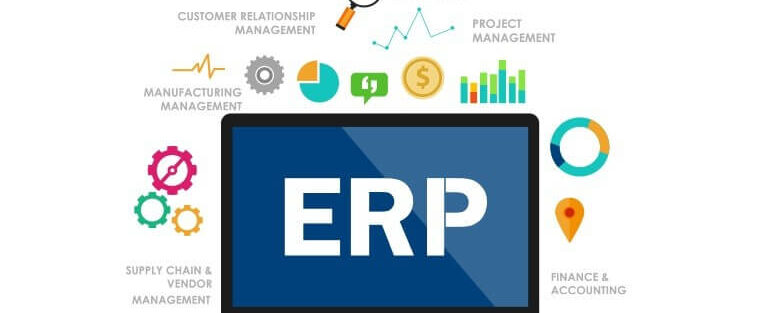In today’s fast-paced and interconnected business environment, the adoption of Enterprise Resource Planning (ERP) systems has become more than a trend—it’s a strategic imperative. In this article, we explore the paramount importance of ERP for any business seeking not just survival, but sustained growth and excellence.
1. Unified Data Management
ERP serves as the backbone for unified data management. It integrates various business processes and functions into a single, coherent system. From finance and human resources to supply chain and customer relations, ERP ensures that all data is centralized and easily accessible. This not only streamlines operations but also provides a comprehensive view of the entire business landscape.
2. Enhanced Efficiency and Productivity
Efficiency is the cornerstone of business success. ERP automates routine tasks, eliminating manual processes and reducing the risk of errors. This automation not only enhances operational efficiency but also frees up valuable human resources to focus on more strategic and value-added tasks. The result is a more productive workforce and streamlined business operations.
3. Improved Decision-Making with Real-Time Insights
Informed decisions are the bedrock of success. ERP systems provide real-time insights into key performance indicators, market trends, and operational metrics. This empowers decision-makers with accurate, up-to-date information, enabling them to make strategic decisions promptly. The ability to access real-time data is a game-changer in a business landscape where agility is a competitive advantage.
4. Customer-Centric Approach
Customer satisfaction is non-negotiable. ERP systems often include Customer Relationship Management (CRM) modules, allowing businesses to manage customer interactions and relationships effectively. By understanding customer needs, preferences, and behavior, businesses can tailor their products and services, fostering stronger customer loyalty and gaining a competitive edge in the market.
5. Adaptability to Changing Business Environments
The only constant in business is change. ERP systems are designed to be scalable and adaptable. Whether a business is expanding its operations, entering new markets, or facing industry shifts, ERP provides the flexibility to accommodate change. This adaptability ensures that businesses remain agile and responsive to evolving market dynamics.
6. Compliance and Risk Management
In a regulated business environment, compliance is paramount. ERP systems help businesses adhere to regulatory requirements by providing robust tools for compliance management. Moreover, by centralizing data and automating processes, ERP reduces the risk of errors and ensures that businesses operate within legal and regulatory boundaries.
7. Cost Savings and Resource Optimization
Efficiency often translates to cost savings. ERP systems contribute to cost reduction by optimizing resource allocation, reducing manual labor, and minimizing the risk of errors that can lead to financial losses. Over time, the return on investment (ROI) from implementing an ERP system can be substantial, making it a strategic financial decision for businesses of all sizes.
Embracing the Future with ERP
In conclusion, ERP is not just a tool; it’s a strategic enabler for businesses seeking to thrive in a competitive and dynamic landscape. The advantages of unified data management, enhanced efficiency, and real-time insights position ERP as a cornerstone for success. Businesses that recognize the importance of ERP are not just investing in technology; they are investing in a future where adaptability, efficiency, and customer-centricity are the keys to sustained growth and excellence.




